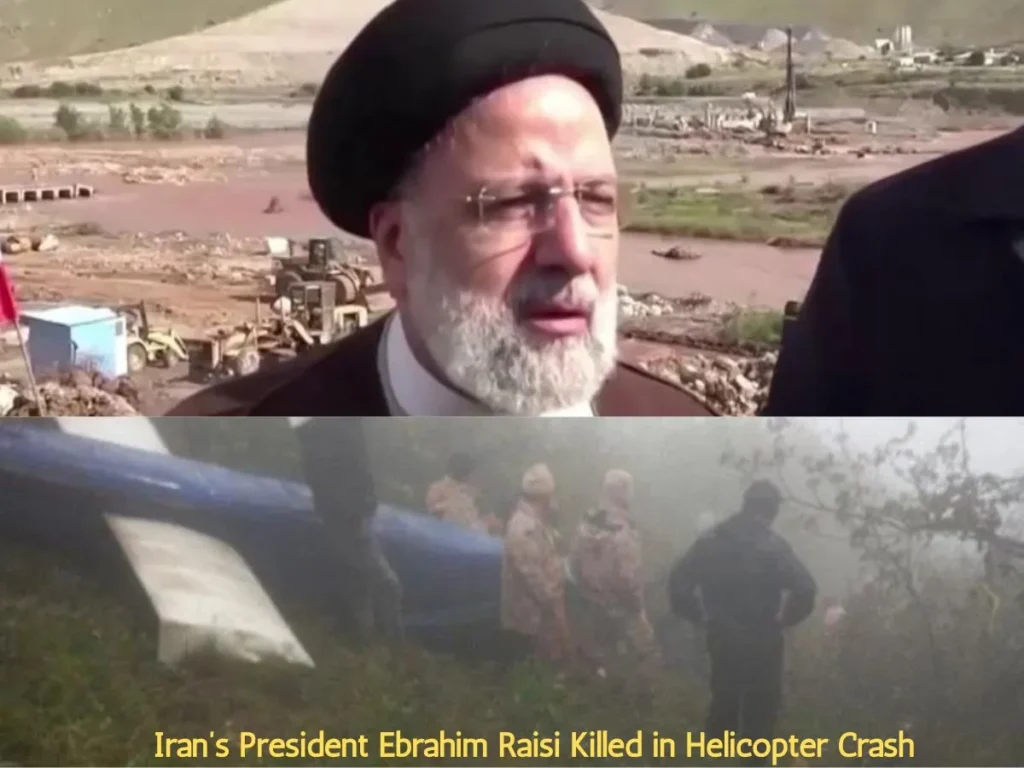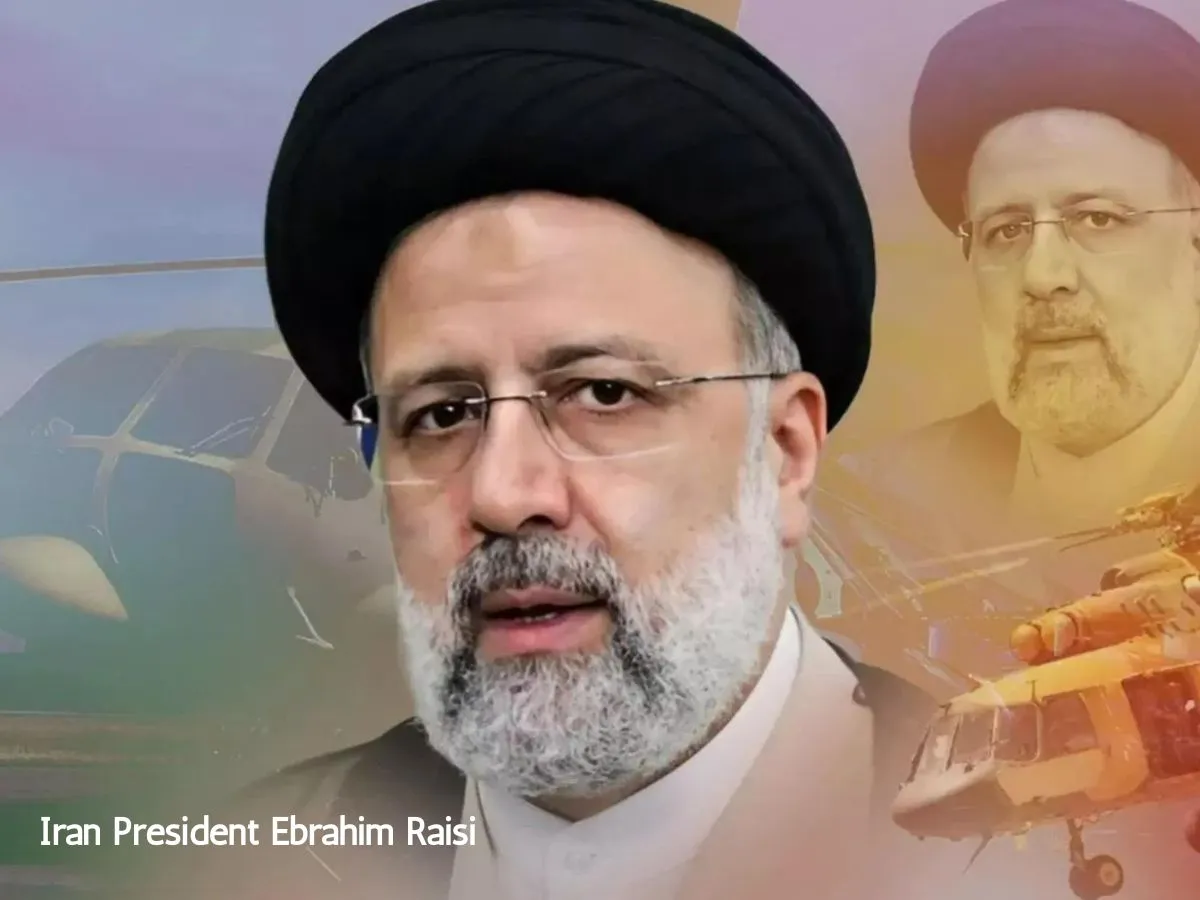Iran’s Hardliner President Ebrahim Raisi Killed in Helicopter Crash on 19th May
Table of Contents
ToggleIranian President Ebrahim Raisi Dies in Tragic Helicopter Crash: Implications and Reactions
In a shocking turn of events, Iranian President Ebrahim Raisi, known for his hardline stance and potential as a successor to Supreme Leader Ayatollah Ali Khamenei, was tragically killed in a helicopter crash. This incident has sent ripples through both Iranian leadership and the international community.
The Incident
The helicopter carrying President Raisi, Foreign Minister Hossein Amirabdollahian, and six others crashed in mountainous terrain near the Azerbaijan border. The crash occurred amidst blizzard conditions, complicating immediate search and rescue efforts. The wreckage was discovered early on Monday after a strenuous overnight search.
Immediate Aftermath
Search teams faced harsh weather conditions but managed to locate the charred remains of the helicopter. Iranian officials swiftly confirmed the deaths of all onboard. Vice President Mohsen Mansouri and state television publicly acknowledged the tragic loss.

Reactions from Iranian Leadership
Supreme Leader Ayatollah Ali Khamenei expressed deep condolences, referring to Raisi’s death as “martyrdom.” This sentiment echoed through various statements from Iranian officials. An extraordinary meeting of Iran’s three government branches took place to address the immediate power vacuum, with First Vice President Mohammad Mokhber expected to assume interim presidential duties.
Global Reactions
The global community reacted swiftly, with leaders from Syria, Egypt, India, Iraq, Pakistan, and others expressing their sympathies. Notably, Iran-backed groups like Hamas, Hezbollah, and the Houthi rebels praised Raisi, mourning his loss and offering condolences.
Speculations and Clarifications
As the investigation into the crash began, speculation about potential foul play surfaced. An Israeli official promptly denied any involvement, emphasizing that the crash was not an act of sabotage. The cause of the crash remains under scrutiny, with initial reports pointing to severe weather conditions as a significant factor.
Ebrahim Raisi’s Political Legacy
Ebrahim Raisi, 63, rose to prominence in Iranian politics, eventually becoming president in 2021. His tenure was marked by strict enforcement of morality laws, a tough stance on nuclear negotiations, and a crackdown on anti-government protests. Raisi’s legacy is complex, reflecting both staunch support and fierce opposition.
Implications for Iran’s Future
Raisi’s death creates immediate and long-term implications for Iran. In the short term, First Vice President Mohammad Mokhber will serve as interim president for 50 days, as mandated by the constitution, until new elections are held. The long-term impact on Iran’s political landscape, particularly concerning potential successors to Supreme Leader Khamenei, remains to be seen.
Internal Political Climate
Iran faces significant internal challenges, including political dissent, economic crises, and social unrest. Raisi’s death adds another layer of complexity to an already volatile situation. Public reactions within Iran are mixed, with some mourning the loss and others viewing it as a potential turning point.
Iran’s International Relations
The incident occurs at a critical juncture for Iran’s international relations. Ongoing nuclear negotiations, military alliances, particularly with Russia, and regional dynamics are all likely to be influenced by Raisi’s death. The international community is closely monitoring how this will affect Iran’s foreign policy moving forward.
Media Coverage
State media in Iran has been cautious, focusing on official condolences and the narrative of martyrdom. Social media, however, has been more varied, with a range of opinions and speculations. International media outlets have provided extensive coverage, highlighting the incident’s geopolitical implications.
Expert Analysis
Political analysts are weighing in on the potential outcomes of Raisi’s death. Historically, such incidents have had profound effects on a nation’s political trajectory. Experts predict a period of uncertainty but also a possible shift in Iran’s domestic and international policies.
Conclusion
The sudden death of President Ebrahim Raisi marks a significant moment in Iranian history. As the nation navigates this unexpected event, the world watches closely, anticipating both immediate and long-term ramifications. Raisi’s legacy and the future of Iran’s leadership are now subjects of intense global interest.


